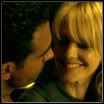Post by webfooted on Mar 7, 2005 17:35:02 GMT -5
“Wishing” was a very interesting episode and for me, having worked with the mentally disabled for many years, I can appreciate the nuance of the storyline. The storywriters either had a working knowledge of the mentally disabled or they had an incredible insight into their world. After reading the postings so far, here is my take on this episode.
In today’s society, they say that one in two marriages will fail. It takes effort and work to make a marriage work and the reasons for failure are almost as great as the individuals. “Wishing” did not give us much of a glimpse into the dynamics of the couple when they first married and it appears that Colin was born soon after the marriage. I must also assume, as I don’t think the story told us, how long the father remained in the marriage after the discovery of Colin’s mental disability. But it seems there was mention that he left right after. If so, then Colin’s condition would have been known by age two or three, as his slowness would have become apparent by this time.
We don’t know if at first the father tried to help his son, though the few scenes seem to imply he did not, but it was clear that his mother was not willing to put Colin in special care. Though her excuse was that there were no good facilities, the reality is, in this day and age, there are very excellent programs, both stay at home and community based, that would have been available. But based on the time line, Colin appears to have been born in the 1970’s. The late 60’s and early 70’s was bringing about a big change in the understanding of mental disabilities and already, many of the old policies from the first half of the 20th century were a thing of the past. The mother may simply have refused to cut the umbilical cord and allow Colin to grow independently. This is not an unusual situation. I have observed over protective mothers who believe that no one else can provide the care they themselves can (unfortunately, in most cases they haven’t the tools to do so and are too proud or ashamed to ask) and they push others away who try to help. So, the father may have tried to help Colin at the very start and the mother may have refused to allow him any say in how to help his son.
Through frustration, he simply gave up and left. Now, at this point, let’s do some “what if’s”, if the father felt that the only way to help his son was to get him into a program or facility, and the mother refused to do so, saying that she would care for Colin at home and he needed to pay her through child support, what are his options? Hire an attorney and spend years in court fighting to get the proper care his son needed, in the process spending every last dime he was able to earn through what appears to be a lower income job? Or simply throw up his hands and walk away from the situation. Probably the latter, as it was too overwhelming for him to do this. Does this make him the bad guy? Possibly, but doesn’t the mother bear some of the responsibility, by not allowing him to participate in Colin’s course of care?
One could also surmise from the snippets in the program that the father did visit from time to time, as he was not a stranger to his son. All we know is that he didn’t visit often, as the mother had made up the excuse of the paleontologist profession. We are missing too much of this father, mother and son relationship to make a fully informed assessment of the father, hence, harsh judgment may be too easy in this case.
We do not know enough about the father in regards to Colin, when the mother died. Had Colin still been living at her death, he might very well have stepped up to the plate and taken some actions in regard to his son. How do we know that he wasn’t just an angry man who had issues with the mother, and didn’t want to give in to her for any reason while she lived? Just a thought.
The mother’s actions are totally believable except, I think, in the issue of whether she gave a nod to Nathan to essentially execute her son. When, in all other situations, the upbringing, the fight with the parents who wanted to force her to send her son away, etc., I just don’t think she’d have so easily given up on his care by an outside agency in the event of her eminent death. If anything, depending on her state of mind and her bond with Colin, she would more likely have sent Nathan on a fools’ errand back to Vermont, and then have committed a murder/suicide act. I don’t think she could have consciously put Nathan into that situation, knowing that more likely than not, he would be caught and charged for the death of her son. Otherwise, if she consciously did put Nathan there, then she was obviously very callous and didn’t care for anyone but herself. With that premise, who’s the worst offender? The father or the mother?
On the issue of Nathan’s involvement with the death of Colin, yes, he is culpable for his actions. First, Colin, though at this point an adult in years, is little more than a five year old. A five year old who has not learned reason, but still operates mostly on emotion. Nathan knew exactly what he was doing and the purposeful placement of Colin on the tracks with a train coming was no less than murder by any definition. Why didn’t Colin jump from the tracks when the train neared him? As a five year, he had complete, let me repeat that, “ complete” trust in Nathan. Nathan had, for several years, been there for him, helped him, rescued him and showed a form of friendship to him. Because of Colin’s lack of reason and his need for emotional support, he would never have questioned Nathan’s promise of the wish. Further, though I’m not sure this would fit with Colin’s form of mental disability, I have worked with individuals who would place their heads on the hoods of an idling car to feel the vibrations. If left to themselves, they would remain like this all day. Because of their inability to relate to the world with reason, some of the mentally disabled will relate through touch and feel. One could surmise that the sensations that Colin received from the oncoming train further put him into the trance of his wishing. He was unable to reason out the danger of the oncoming train.
Hence, Nathan committed murder, whether by train or by taking a pistol and pulling the trigger while Colin was wishing.
As for the storyline with Leah, the storywriters had it right, it would most likely have played out just as it was shown. The mentally disabled seldom act out forcible sex acts. Like any adolescent, they will engage in sexual exploration, if given an opportunity by another, but to attack someone with sexual intent in mind would not be normal in their situation. When we look at young children, of ages four to puberty, we see children become attracted to one another and call it puppy love. We consider this normal and encourage it, (think valentines day in elementary school). We, as adults went through it ourselves as children, and when we see it played out in our children, we applaud it as part of learning and growing. Of course, there are limits, but with children, we seldom concern ourselves with the physical sex act, for the children have not developed there yet.
Colin would have developed a typical adolescent crush on Leah. Leah, on the other hand, was a fully matured adult, and was really just trying to provide a kind gesture to Colin, as she might with any five year who showed the same attention. But she wasn’t yet mature enough to handle the situation that resulted when her boyfriend showed up and she lied hoping to avoid ridicule. Unfortunately, she failed again when her parents confronted Colin and his mother, to set the record straight. Though she now saw where this was headed, she still could not bring herself to stop it. In her naïveté, she thought she could absolve herself of the guilt of the lie by meeting with Colin and saying she was sorry. Unfortunately, this means little if there are no actions taken to correct the situation.
The one scene that confuses me, is the one where Colin’s other friend begins to beat on him after the boyfriend does. If the friend is also slow, more often than not, they will have great empathy and will want to help their friend by making it better. The friend would have taken and hugged Colin close, much as a mother would hold a child who has just been bruised or bumped. It’s a simple form of nurturing. The idea that his friend beat on him because Colin couldn’t stand up to the bully just doesn’t play well with me. It is one of the few plot twists put in to keep us, the viewers, guessing as to who might have been the one to murder Colin. After all, that’s what the show is all about.
In today’s society, they say that one in two marriages will fail. It takes effort and work to make a marriage work and the reasons for failure are almost as great as the individuals. “Wishing” did not give us much of a glimpse into the dynamics of the couple when they first married and it appears that Colin was born soon after the marriage. I must also assume, as I don’t think the story told us, how long the father remained in the marriage after the discovery of Colin’s mental disability. But it seems there was mention that he left right after. If so, then Colin’s condition would have been known by age two or three, as his slowness would have become apparent by this time.
We don’t know if at first the father tried to help his son, though the few scenes seem to imply he did not, but it was clear that his mother was not willing to put Colin in special care. Though her excuse was that there were no good facilities, the reality is, in this day and age, there are very excellent programs, both stay at home and community based, that would have been available. But based on the time line, Colin appears to have been born in the 1970’s. The late 60’s and early 70’s was bringing about a big change in the understanding of mental disabilities and already, many of the old policies from the first half of the 20th century were a thing of the past. The mother may simply have refused to cut the umbilical cord and allow Colin to grow independently. This is not an unusual situation. I have observed over protective mothers who believe that no one else can provide the care they themselves can (unfortunately, in most cases they haven’t the tools to do so and are too proud or ashamed to ask) and they push others away who try to help. So, the father may have tried to help Colin at the very start and the mother may have refused to allow him any say in how to help his son.
Through frustration, he simply gave up and left. Now, at this point, let’s do some “what if’s”, if the father felt that the only way to help his son was to get him into a program or facility, and the mother refused to do so, saying that she would care for Colin at home and he needed to pay her through child support, what are his options? Hire an attorney and spend years in court fighting to get the proper care his son needed, in the process spending every last dime he was able to earn through what appears to be a lower income job? Or simply throw up his hands and walk away from the situation. Probably the latter, as it was too overwhelming for him to do this. Does this make him the bad guy? Possibly, but doesn’t the mother bear some of the responsibility, by not allowing him to participate in Colin’s course of care?
One could also surmise from the snippets in the program that the father did visit from time to time, as he was not a stranger to his son. All we know is that he didn’t visit often, as the mother had made up the excuse of the paleontologist profession. We are missing too much of this father, mother and son relationship to make a fully informed assessment of the father, hence, harsh judgment may be too easy in this case.
We do not know enough about the father in regards to Colin, when the mother died. Had Colin still been living at her death, he might very well have stepped up to the plate and taken some actions in regard to his son. How do we know that he wasn’t just an angry man who had issues with the mother, and didn’t want to give in to her for any reason while she lived? Just a thought.
The mother’s actions are totally believable except, I think, in the issue of whether she gave a nod to Nathan to essentially execute her son. When, in all other situations, the upbringing, the fight with the parents who wanted to force her to send her son away, etc., I just don’t think she’d have so easily given up on his care by an outside agency in the event of her eminent death. If anything, depending on her state of mind and her bond with Colin, she would more likely have sent Nathan on a fools’ errand back to Vermont, and then have committed a murder/suicide act. I don’t think she could have consciously put Nathan into that situation, knowing that more likely than not, he would be caught and charged for the death of her son. Otherwise, if she consciously did put Nathan there, then she was obviously very callous and didn’t care for anyone but herself. With that premise, who’s the worst offender? The father or the mother?
On the issue of Nathan’s involvement with the death of Colin, yes, he is culpable for his actions. First, Colin, though at this point an adult in years, is little more than a five year old. A five year old who has not learned reason, but still operates mostly on emotion. Nathan knew exactly what he was doing and the purposeful placement of Colin on the tracks with a train coming was no less than murder by any definition. Why didn’t Colin jump from the tracks when the train neared him? As a five year, he had complete, let me repeat that, “ complete” trust in Nathan. Nathan had, for several years, been there for him, helped him, rescued him and showed a form of friendship to him. Because of Colin’s lack of reason and his need for emotional support, he would never have questioned Nathan’s promise of the wish. Further, though I’m not sure this would fit with Colin’s form of mental disability, I have worked with individuals who would place their heads on the hoods of an idling car to feel the vibrations. If left to themselves, they would remain like this all day. Because of their inability to relate to the world with reason, some of the mentally disabled will relate through touch and feel. One could surmise that the sensations that Colin received from the oncoming train further put him into the trance of his wishing. He was unable to reason out the danger of the oncoming train.
Hence, Nathan committed murder, whether by train or by taking a pistol and pulling the trigger while Colin was wishing.
As for the storyline with Leah, the storywriters had it right, it would most likely have played out just as it was shown. The mentally disabled seldom act out forcible sex acts. Like any adolescent, they will engage in sexual exploration, if given an opportunity by another, but to attack someone with sexual intent in mind would not be normal in their situation. When we look at young children, of ages four to puberty, we see children become attracted to one another and call it puppy love. We consider this normal and encourage it, (think valentines day in elementary school). We, as adults went through it ourselves as children, and when we see it played out in our children, we applaud it as part of learning and growing. Of course, there are limits, but with children, we seldom concern ourselves with the physical sex act, for the children have not developed there yet.
Colin would have developed a typical adolescent crush on Leah. Leah, on the other hand, was a fully matured adult, and was really just trying to provide a kind gesture to Colin, as she might with any five year who showed the same attention. But she wasn’t yet mature enough to handle the situation that resulted when her boyfriend showed up and she lied hoping to avoid ridicule. Unfortunately, she failed again when her parents confronted Colin and his mother, to set the record straight. Though she now saw where this was headed, she still could not bring herself to stop it. In her naïveté, she thought she could absolve herself of the guilt of the lie by meeting with Colin and saying she was sorry. Unfortunately, this means little if there are no actions taken to correct the situation.
The one scene that confuses me, is the one where Colin’s other friend begins to beat on him after the boyfriend does. If the friend is also slow, more often than not, they will have great empathy and will want to help their friend by making it better. The friend would have taken and hugged Colin close, much as a mother would hold a child who has just been bruised or bumped. It’s a simple form of nurturing. The idea that his friend beat on him because Colin couldn’t stand up to the bully just doesn’t play well with me. It is one of the few plot twists put in to keep us, the viewers, guessing as to who might have been the one to murder Colin. After all, that’s what the show is all about.






 ..........
.......... ..........
.......... ...........
...........




















